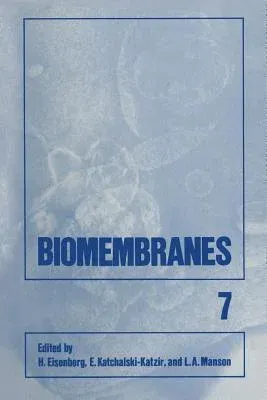Henryk Eisenberg
(Author)Aharon Katzir Memorial Volume (Softcover Reprint of the Original 1st 1975)Paperback - Softcover Reprint of the Original 1st 1975, 26 November 2012

Qty
1
Turbo
Ships in 2 - 3 days
In Stock
Free Delivery
Cash on Delivery
15 Days
Free Returns
Secure Checkout
Part of Series
Biomembranes
Print Length
258 pages
Language
English
Publisher
Springer
Date Published
26 Nov 2012
ISBN-10
146847670X
ISBN-13
9781468476705
Description
Product Details
Book Edition:
Softcover Reprint of the Original 1st 1975
Book Format:
Paperback
Country of Origin:
NL
Date Published:
26 November 2012
Dimensions:
22.86 x
15.24 x
1.52 cm
ISBN-10:
146847670X
ISBN-13:
9781468476705
Language:
English
Location:
New York, NY
Pages:
258
Publisher:
Series:
Weight:
381.02 gm

